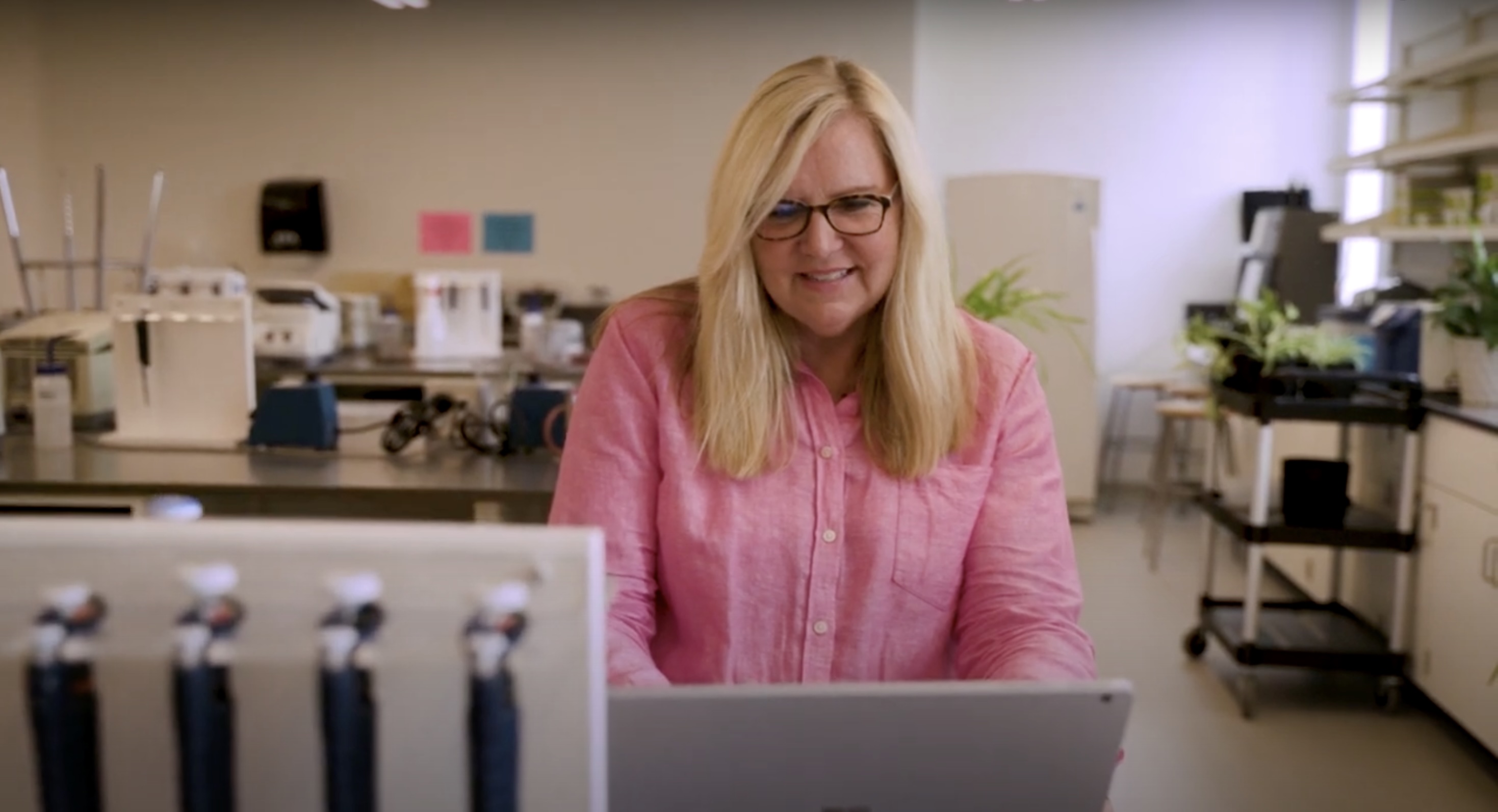
By Sarah Anderson, PhD
The Department of Microbiology and Immunology and the greater UBC community celebrate the career and retirement of lecturer Karen Smith.
Smith earned her bachelor’s degree in microbiology from UBC and, after graduating, served as a sessional lecturer for a microbiology laboratory course. She went on to become a full-time member of the teaching faculty, leading undergraduate students through their introduction to cell biology, environmental and medical microbiology, experimental techniques in microbiology, and other fundamental classroom- and laboratory-based courses.
“In the lecture, you're trying to keep students engaged and help them make connections with the material. And then in the lab, you're trying to help them develop their motor skills and also their cognitive skills so that they're thinking while they're doing. So, I think what drove my career is trying to look at ways of improving both of those situations,” Smith said. “I started to get really engaged in the scholarship of teaching and learning, or the idea of: What are good approaches and practices for teaching, and how can we make things better?”

Smith participated in the Carl Wieman Science Education Initiative, which brought together educators from across UBC to develop interactive, evidence-based teaching methods to improve undergraduate science education. She implemented a flipped learning model in her Biology of the Cell course in which students reviewed material to gather factual information before class, and then applied their knowledge to completing activities and solving problems with instructor support during class time.
Smith recognized that improving science education would also mean understanding how life factors outside of the classroom influence learning and identifying non-cognitive factors critical for academic success. “I definitely saw that there was a disadvantage to the student who was commuting from far away, had to go home to take care of their family, or had to go to work to support tuition and general living expenses,” she said. She began to dive into the literature on student wellbeing and found that students who were more actively involved in the university community experienced a greater sense of belonging and performed better academically.
As part of a project to enhance academic tenacity, Smith gave her students credit for completing activities in various wellbeing categories, including physical and mental health, community engagement, positive study habits and professional development. She brought her unique insight to the International Conference on Health Promoting Universities and Colleges hosted at UBC Okanagan in 2015, where participants worked together to develop the Okanagan Charter. This document provides educational institutions with a common language and framework to embed health and wellbeing into all aspects of campus culture.
As Smith worked to identify and overcome barriers to learning, she came to appreciate the important role of equity, diversity and inclusion (EDI) initiatives in promoting success for all students. As part of UBC's Equity & Inclusion Scholars Program, she worked to develop a set of tools that could evaluate EDI-based metrics and inform practices to enhance equity and intercultural understanding in introductory science courses. She also served as chair of the Department of Microbiology and Immunology’s EDI Committee and the Faculty of Science’s Student Diversity Initiative Committee.
In the later stages of her career, Smith only ramped up her efforts to drive new innovations in teaching and learning. Working with undergraduate program coordinator and artist Craig Kornak and other members of the teaching faculty, Smith helped launch a narrative learning project in which drawings of microbe characters are used to illustrate scientific concepts. “We're developing these comic strips to support the content in the chapter readings to try to make it more engaging and fun, but also to direct students to the key points that they need to know,” Smith said. “Some people might say, ‘Oh, this is not serious science,’ but it really is. I think that there's more than one way to deliver material, and it doesn't always have to be dry, heavy content. Sometimes, you have to pull back and present it in a different way for students to understand.”

Smith also introduced alternative grading methods into her courses, including a mastery learning approach. For certain core concepts such as chemistry for biology, students had the chance to be evaluated multiple times until they demonstrated that they had mastered the content. “This is still a test, but we're giving them the opportunity to do better,” Smith said. “That's what you really want, right? You want the students, by the end of the course, to have mastered the material. We know that students will forget some of what we teach them, but we can try to help them master the content that is especially important as they progress in the life sciences.”
Smith’s commitment to her students and to bettering science education were recognized with UBC’s Killam Teaching Prize in 2016 and Science Excellence in Service Award in 2020. But for Smith, her proudest accomplishments can’t be succinctly summarized on her CV. “I’m really proud of the fact that I’ve been open to new experiences and to trying new things because the university is now in a better place. When I started, the focus was on lecturing and 'the expert knowledge filling up the vessel,'" she said. “I'd like to think that I have made a contribution to where education is today and that all of us, collectively, are making strides.”
While Smith will miss the sense of reward that comes from helping students thrive and the close-knit community of the teaching faculty, she embraces the opportunity to travel during retirement. Her first stop is Scotland this fall—a voyage that marks, she said, "the first time in eons that I’ve been able to take a trip in September.”

